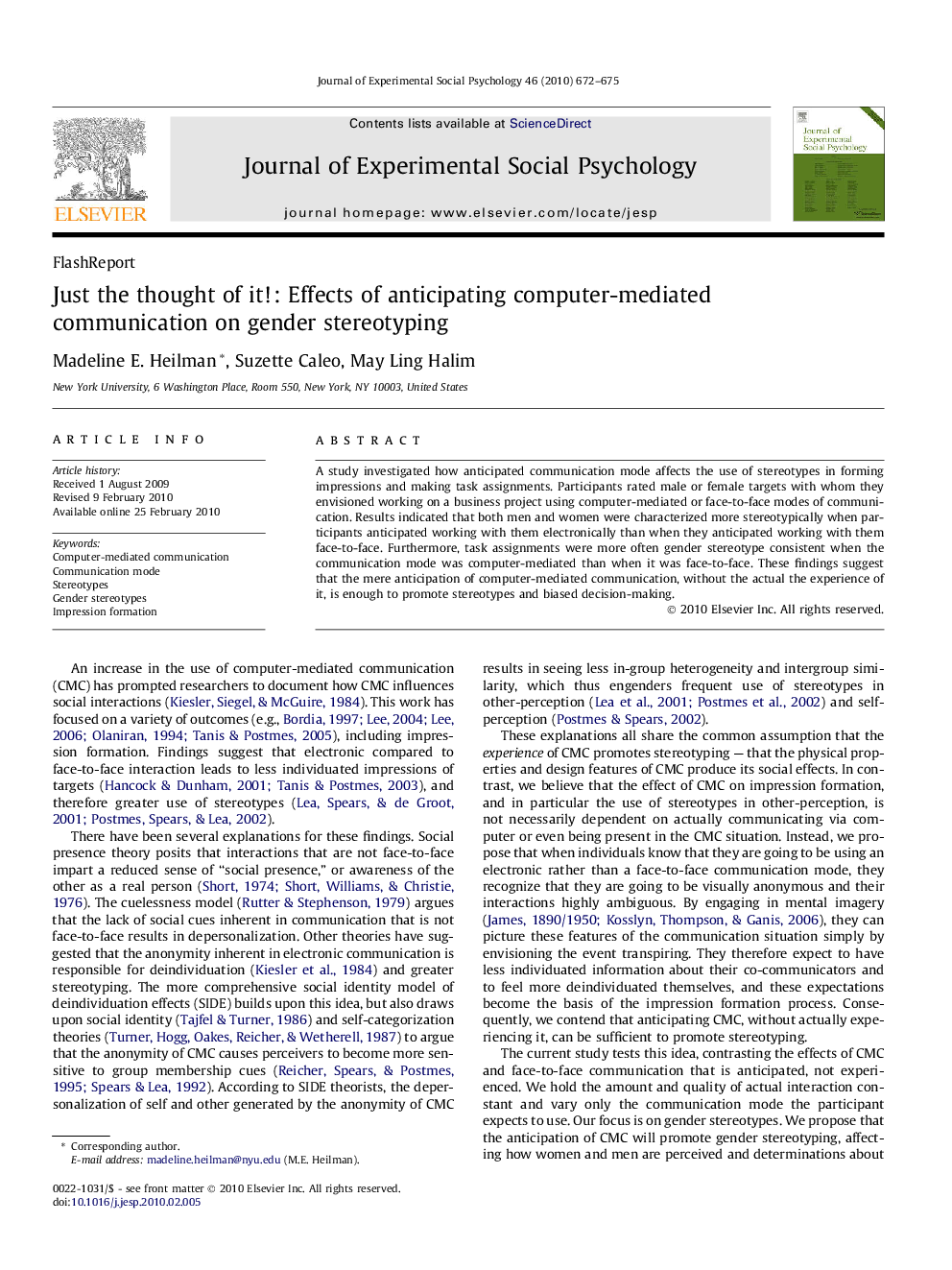| Article ID | Journal | Published Year | Pages | File Type |
|---|---|---|---|---|
| 948716 | Journal of Experimental Social Psychology | 2010 | 4 Pages |
A study investigated how anticipated communication mode affects the use of stereotypes in forming impressions and making task assignments. Participants rated male or female targets with whom they envisioned working on a business project using computer-mediated or face-to-face modes of communication. Results indicated that both men and women were characterized more stereotypically when participants anticipated working with them electronically than when they anticipated working with them face-to-face. Furthermore, task assignments were more often gender stereotype consistent when the communication mode was computer-mediated than when it was face-to-face. These findings suggest that the mere anticipation of computer-mediated communication, without the actual the experience of it, is enough to promote stereotypes and biased decision-making.
